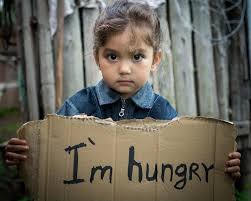In a previous blog post, I wrote about the impact of divorce on a woman’s future financial stability. The integral piece of this conversation is the impact poverty has on her children and the importance of our leadership as communities to support every family structure. There is not a one step solution for these challenges as it is a spaghetti bowl of complexities that make these issues daunting and seemingly unsolvable. I do believe as a community we can make an impact when we not only engage in thought leadership but also have the courage to develop and create solutions.
Let’s look at some facts. In the U.S,, nearly half of all births are financed by Medicaid.

and the US has an alarmingly high poverty rate compared to other industrialized nations
![Which Countries Have The Highest Rates Of Child Poverty? [Infographic]](https://jodipatton04gmailcom.wordpress.com/wp-content/uploads/2020/07/image.png?w=266)
and of course their is the racial divide

This is a grim reality. Nearly half of all children start out their lives in poverty and we know the climb to get out is difficult and at times nearly impossible. These are not issues we can turn away from and think will solve themselves.

The issues related to poverty proliferate as so many children start out at a significant disadvantage and the problems do not magically rectify themselves. It is estimated today that nearly fifteen million children live in poverty and the reality is that poverty exists on a continuum. Some children are living in deep levels of poverty while others are in two income families whose financial stability may exist just above the poverty line. All of these lives are faced with challenges.
What is the effect of poverty on children? The impacts are vast.
First there is how it feels…
Which in turn affects brain development…
And back to the spaghetti bowl we talked about earlier….
I’ve shared a mist of my experience of what it feels like to grow up poor and I would say I lived an “advantaged” poor life. I had a strong family structure and support that helped lift me out, but not without struggle and impact. This is what solidifies my passion around reinvention and how we can conceptualize the ways to support each other. It will take each person’s individual strength to get where they determine their path will lead them, but it is the backing of communities and individuals that help support each other in the struggles we encounter.
It is through connection and understanding that we can make the small impacts that will result in large change. I think the statistics clearly show that we have turned our heads away from the problem, but poverty is deeply imbedded in our country. Two parent families are at risk. Single female households are at risk. Divorced women are at risk. Children are at risk.
I think the core of the work that needs to be done is in support of women finding their space in the workforce and creating the opportunities that will allow them to thrive is to reinvent the workplace to reflect the needs of women and families. This does not just support single or divorced women, but all families in achieving greater financial stability.
How do we call the fight against poverty to action? I would love to hear your solutions below.
Hi Jodi, I just wanted to say I am truly enjoying your blog. I don’t have a solution to income inequity. I think it will persist as long as there are insecure, greedy people who lack empathy in this world. No political system has seemed to work yet. I have some relatives who work in home textiles. They are a small business which pays their employees a living wage and supplies them with health insurance. They also use US grown organic cotton. I admire them. I have another family member who owns a landscape business, pays his employees as little as possible, and does not supply insurance. His mindset is to win with the most toys. So we as a society pay for his employees healthcare via Medicaid. I do not admire him. OK, he is my brother and we were raised in the same household and have completely different values. I wonder about why people are who they are every day.
LikeLike
Thank you for reply Lynne! Healthcare should not be as difficult as it is. We see the impact that this has on society. Jodi
LikeLike
Great topic and great insights I never knew.
LikeLike
Thank you Lali. It truly is a subject we don’t discuss. Jodi
LikeLike